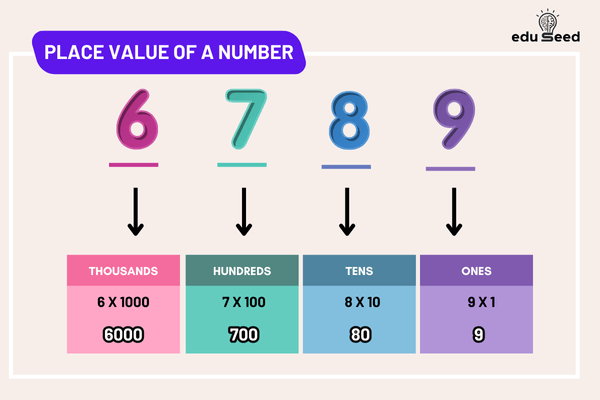The Difference Between Cognitive Empathy and Affective Empathy
Empathy is a complex psychological phenomenon that plays a crucial role in human interactions and relationships. It can be broadly divided into two main types: cognitive empathy and affective empathy. Understanding the distinction between these two forms of empathy is essential for developing emotional intelligence and fostering meaningful connections with others.
Cognitive Empathy
Cognitive empathy, also known as perspective-taking, refers to the ability to understand and consider another person’s thoughts, feelings, and perspective. It involves putting oneself in someone else’s shoes and seeing the world from their point of view. Individuals high in cognitive empathy are adept at recognising and interpreting the emotions of others, even if they do not necessarily share those emotions.
This form of empathy enables individuals to engage in effective communication, resolve conflicts, and navigate social situations with greater ease. By being able to grasp the thoughts and emotions of others, individuals with cognitive empathy can respond appropriately and demonstrate understanding and compassion.
Affective Empathy
Affective empathy, on the other hand, involves experiencing an emotional response that mirrors what another person is feeling. It is often described as “feeling with” someone rather than simply understanding their emotions. Individuals high in affective empathy are sensitive to the emotional cues of others and can resonate with their feelings on a deep level.
This type of empathy allows individuals to connect emotionally with others, show genuine concern and support, and build strong interpersonal bonds based on shared emotions. Affective empathy plays a vital role in fostering compassion, kindness, and altruistic behaviour towards others.
The Interplay Between Cognitive and Affective Empathy
While cognitive empathy focuses on understanding another person’s perspective intellectually, affective empathy emphasises connecting with them emotionally. Both forms of empathy are essential for building healthy relationships, enhancing social skills, and promoting prosocial behaviour.
Individuals who possess a balance of cognitive and affective empathy are better equipped to navigate the complexities of human interactions effectively. By combining an understanding of others’ perspectives with genuine emotional resonance, they can communicate empathetically, offer meaningful support, and cultivate authentic connections based on mutual respect and understanding.
In conclusion, cognitive empathy and affective empathy are two distinct yet complementary aspects of empathetic engagement that contribute to our ability to connect with others on multiple levels. Developing both forms of empathy can enrich our relationships, enhance our emotional intelligence, and foster a more compassionate society built on mutual understanding and shared humanity.
Understanding Cognitive and Affective Empathy: Key Questions and Insights
- What is cognitive empathy and how does it differ from affective empathy?
- Can cognitive empathy be developed through practice and learning?
- How does affective empathy influence our emotional connections with others?
- What role do cognitive and affective empathy play in building strong relationships?
- Are individuals born with varying levels of cognitive and affective empathy?
- In what ways can cognitive empathy enhance communication skills and conflict resolution?
- Is there a relationship between cognitive empathy and emotional intelligence?
- How can one strike a balance between cognitive and affective empathy in interpersonal interactions?
What is cognitive empathy and how does it differ from affective empathy?
When exploring the concept of empathy, it is common to encounter the frequently asked question: “What is cognitive empathy and how does it differ from affective empathy?” Cognitive empathy refers to the ability to understand and consider another person’s thoughts, feelings, and perspective, allowing individuals to interpret emotions and see the world from someone else’s point of view. In contrast, affective empathy involves experiencing an emotional response that mirrors what another person is feeling, enabling individuals to connect emotionally with others on a deep level. The key distinction lies in cognitive empathy focusing on understanding intellectually, while affective empathy emphasises emotional connection and resonance. By grasping the nuances of these two forms of empathy, individuals can navigate social interactions with greater sensitivity and compassion.
Can cognitive empathy be developed through practice and learning?
The question of whether cognitive empathy can be developed through practice and learning is a common inquiry in discussions about empathy. Cognitive empathy, which involves understanding and considering another person’s thoughts and feelings, can indeed be cultivated and enhanced through intentional efforts. By engaging in activities such as active listening, perspective-taking exercises, and empathy-building workshops, individuals can improve their ability to empathise with others on a cognitive level. Through consistent practice and exposure to diverse perspectives, individuals can broaden their empathetic skills and become more adept at interpreting and responding to the emotions of those around them. Ultimately, nurturing cognitive empathy through learning and practice can lead to stronger interpersonal connections, improved communication skills, and a deeper understanding of the complexities of human emotions.
How does affective empathy influence our emotional connections with others?
Affective empathy plays a fundamental role in shaping our emotional connections with others by allowing us to share and resonate with their feelings on a deep level. When we experience affective empathy, we not only understand the emotions of others but also feel them ourselves, creating a sense of emotional closeness and connection. This shared emotional experience fosters compassion, kindness, and genuine concern for the well-being of others, strengthening our bonds and relationships. By engaging in affective empathy, we demonstrate our capacity for empathy and understanding, paving the way for more meaningful and authentic emotional connections with those around us.
What role do cognitive and affective empathy play in building strong relationships?
Understanding the roles of cognitive and affective empathy is key to building strong relationships. Cognitive empathy allows us to understand and consider the thoughts and feelings of others, fostering effective communication and conflict resolution. On the other hand, affective empathy enables us to emotionally connect with others, showing genuine concern and support. By combining both forms of empathy, individuals can engage with others on a deeper level, demonstrating understanding, compassion, and emotional resonance. This combination of cognitive and affective empathy forms the foundation for building authentic connections based on mutual respect, kindness, and empathy in relationships.
Are individuals born with varying levels of cognitive and affective empathy?
The question of whether individuals are born with varying levels of cognitive and affective empathy is a topic that has intrigued researchers and psychologists for years. While there is evidence to suggest that genetic factors may play a role in shaping one’s empathetic abilities, environmental influences and life experiences also significantly impact the development of empathy. Some studies indicate that certain personality traits, such as openness and sensitivity, may predispose individuals to higher levels of empathy from an early age. However, it is widely accepted that empathy is a skill that can be nurtured and cultivated through practice, education, and exposure to diverse perspectives. Ultimately, the interplay between nature and nurture contributes to the complexity of empathetic behaviour in individuals.
In what ways can cognitive empathy enhance communication skills and conflict resolution?
Understanding the ways in which cognitive empathy can enhance communication skills and conflict resolution is essential for navigating interpersonal relationships effectively. Cognitive empathy enables individuals to perceive and comprehend the thoughts, emotions, and perspectives of others, allowing for more nuanced and empathetic communication. By actively listening, acknowledging diverse viewpoints, and demonstrating understanding of others’ feelings, individuals with strong cognitive empathy can build rapport, establish trust, and foster open dialogue in challenging situations. In conflict resolution, cognitive empathy plays a crucial role in de-escalating tensions, promoting mutual respect, and finding collaborative solutions that address the underlying needs and concerns of all parties involved. Ultimately, by incorporating cognitive empathy into communication practices and conflict resolution strategies, individuals can cultivate meaningful connections, resolve disputes constructively, and create a more harmonious social environment based on empathy and understanding.
Is there a relationship between cognitive empathy and emotional intelligence?
The relationship between cognitive empathy and emotional intelligence is a topic of significant interest and discussion. Cognitive empathy, which involves understanding and considering others’ thoughts and perspectives, plays a crucial role in emotional intelligence. By being able to accurately perceive and interpret the emotions of others, individuals with strong cognitive empathy demonstrate a key component of emotional intelligence. Affective empathy, on the other hand, focuses on sharing and resonating with others’ emotions, contributing to a deeper level of emotional awareness and connection. Together, cognitive empathy and affective empathy form integral parts of emotional intelligence, allowing individuals to navigate social interactions effectively, demonstrate empathy towards others, and cultivate meaningful relationships based on understanding and compassion.
How can one strike a balance between cognitive and affective empathy in interpersonal interactions?
In navigating interpersonal interactions, striking a balance between cognitive and affective empathy is crucial for fostering meaningful connections and understanding others on a deeper level. To achieve this balance, individuals can start by actively listening to others to understand their perspectives (cognitive empathy) while also acknowledging and validating their emotions (affective empathy). By combining the ability to grasp someone’s thoughts with a genuine emotional response, individuals can demonstrate both understanding and compassion in their interactions. Practising self-awareness, empathy, and emotional regulation can help individuals navigate the complexities of human relationships effectively, leading to more authentic and empathetic connections with others.



